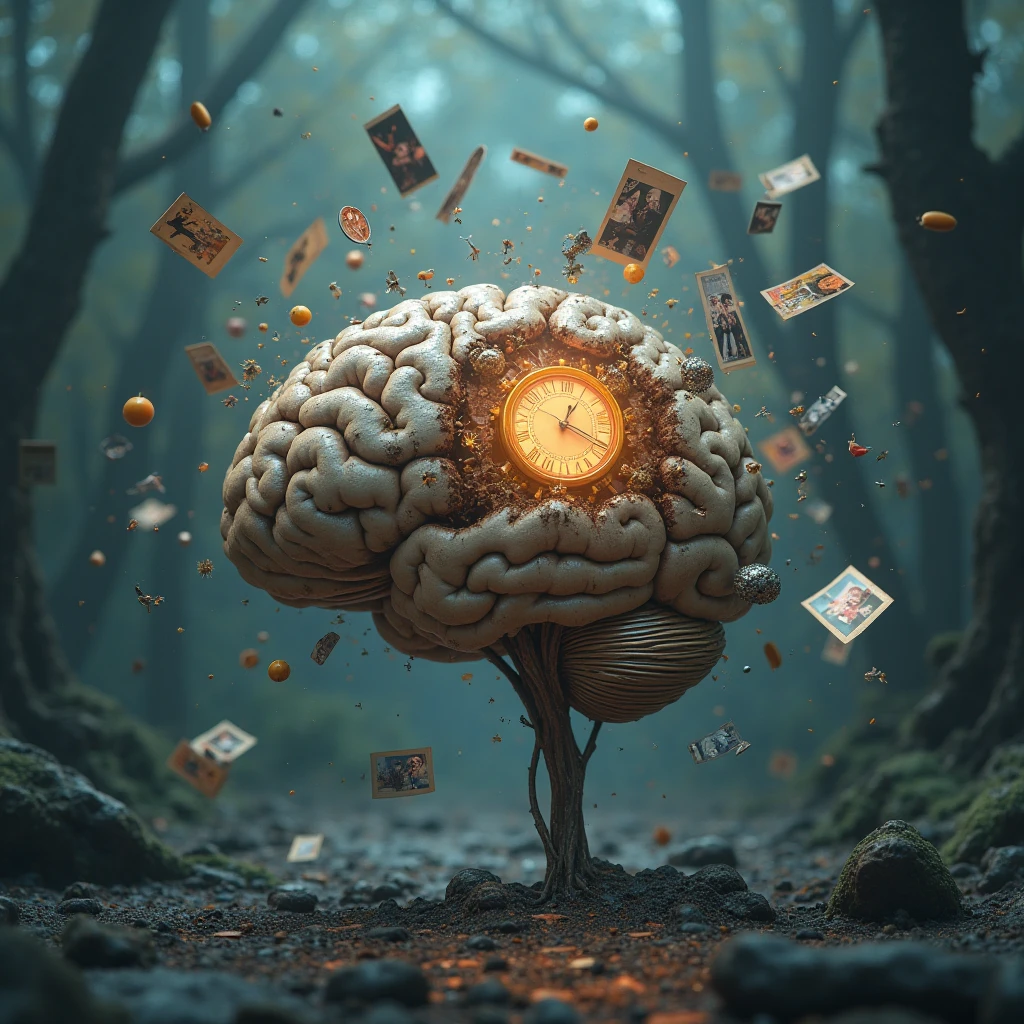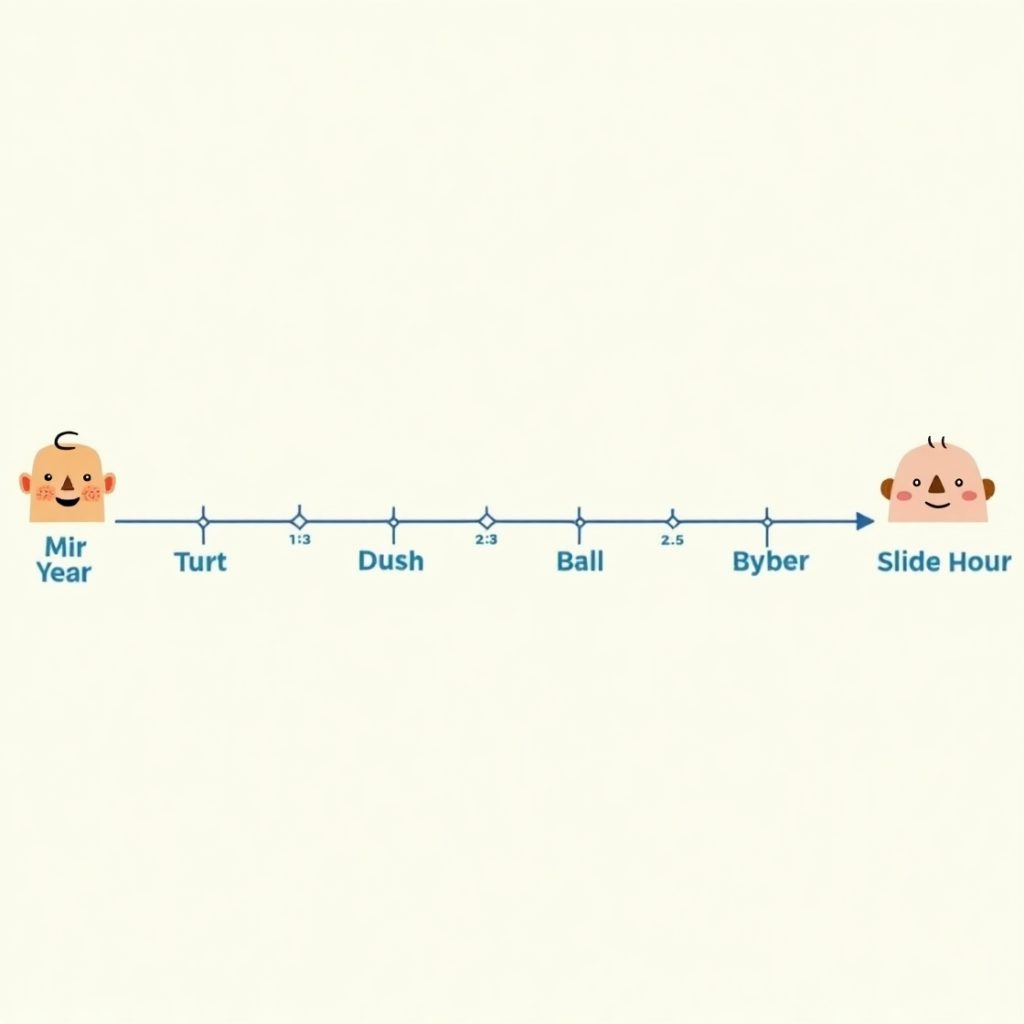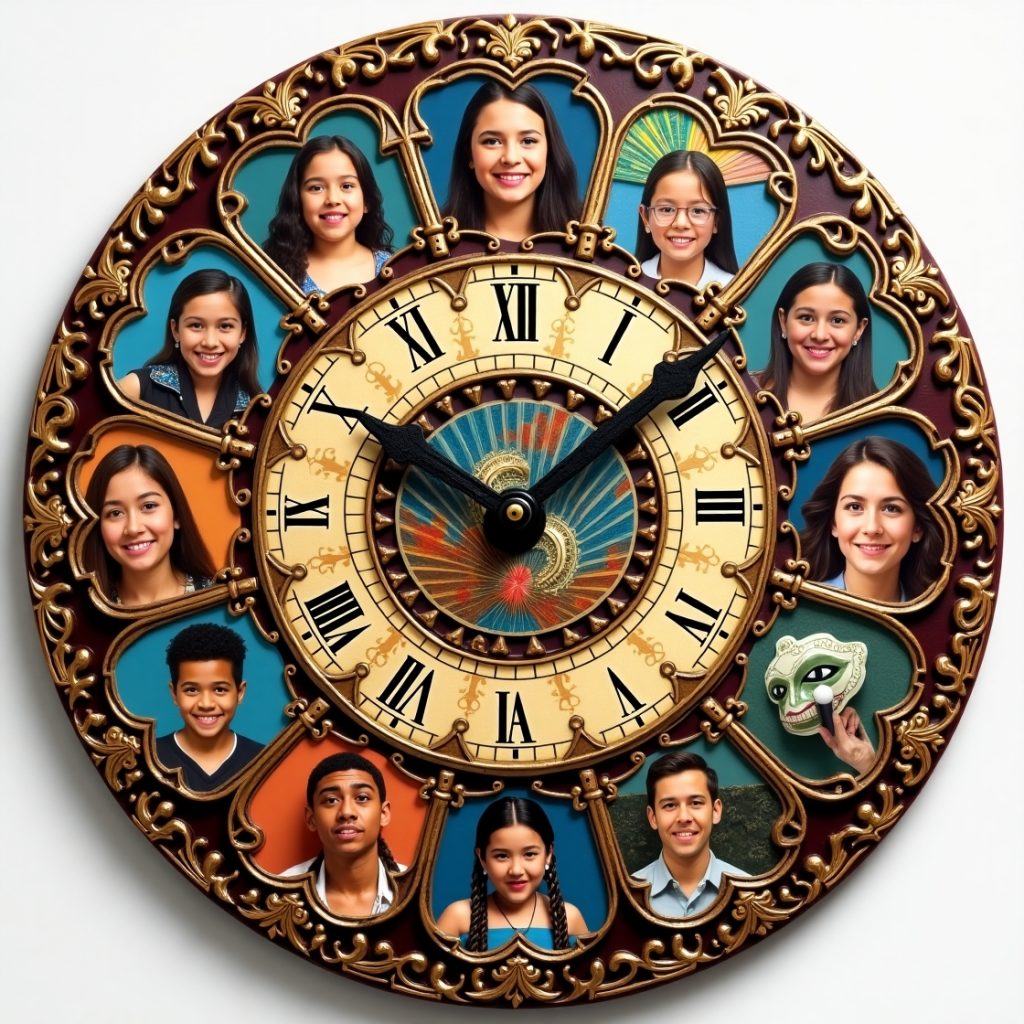Even though time passes by us like grains of sand, as we get older, it seems like the years go by more quickly. Do you remember those endless summer vacations? Each day was full of new discoveries and exciting adventures. Weeks blend into months, and before you know it, another year has slipped away. This strange feeling that Why Time Feels Faster as You Age isn’t just in your head. It’s a true Psychological phenomenon. Scientists and philosophers have puzzled over it for ages.
Picture your life as a movie. Scenes flash by in a dizzying montage. They speed up until it feels like you’re sprinting through your own story. But what causes this warp speed in our perception? The explanation lies in the functioning of our brains. It’s about how we create memories, how routines can numb our senses, and how time changes with our experiences. This isn’t just about aging. It’s about how our consciousness is changing in ways we’re just starting to grasp.
Come along with me as we explore the intriguing field of psychology. Here, time isn’t just minutes and hours. It’s a fluid force shaped by memory, emotion, and daily life rhythms. Why does becoming older make time seem to fly by? The answer reveals deep truths about our lives. It shows how we remember and understand the brief nature of existence.
The “Holiday Paradox”: Why Time Feels Faster
The ” holiday paradox ” is an interesting concept. When you’re busy or enjoying yourself, time flies. But it drags during boring or repetitive moments. A vacation full of new sights and adventures can end in a flash. However, a slow and tedious workday can seem to stretch on forever. This happens because your brain processes time based on the amount of new information it’s taking in.
When you’re young, almost everything is exciting and interesting. Your brain is constantly learning and making strong memories. This can make time seem longer and richer. However, life tends to become more ordinary and predictable as you age. Your brain isn’t taking in as many new experiences. Time seems to be passing more quickly as a result. It appears that the days, months, and years pass quickly. This is a significant reason why time seems to speed up as we age.

The Role of Memory
Our memory plays a decisive role in how we perceive the passage of time. When you’re young, your brain meets new experiences all the time. You have your first days at school, learn to ride a bike, and travel to new places. Each moment is new, so your brain encodes them in rich detail. These vivid memories make time feel fuller and longer in retrospect. Childhood summers seem endless. Your brain creates a mental archive. It fills up with new sights, emotions, and challenges. Unique or emotional experiences take up more memory space. Time seems to be going more slowly as a result.
As we age, life becomes more structured and routine. Many adults have similar daily routines. They commute, work, cook, and sleep. These activities require less focus and result in fewer new memories. Your brain works better. It skips tasks you’ve done before. Instead, it concentrates on fresh or significant data to be retained over time. As a result, fewer new memories are made, and this leads to the feeling that time is passing quickly. A whole week of repetitive routines may feel like a blur, whereas a single day filled with new activities can seem much longer. This change in memory formation affects how you perceive the speed of time.
Interestingly, studies in neuroscience support this idea. When researchers asked people to recall new and varied experiences, they often felt those times lasted longer. This suggests that the brain uses memory density as a mental clock. In other words, the more memories you make, the longer a period feels when you look back. It’s not just about what you do, but how much of it your brain considers worth remembering. Trying new hobbies, meeting new people, or visiting new places can

The Proportional Theory
One reason time seems to speed up as we get older is the proportional theory. Time perception is both simple and powerful. It changes based on how much life we have lived. To a 5-year-old, one year is 20% of their life. That’s a huge part! However, for someone who is 50, that same year represents only 2% of their life. Every year is a smaller part of the whole. So, it feels less essential and goes by faster.
This theory explains why childhood seems vast and filled with endless moments. Remember those long, lazy summers as a kid? They seemed endless. They were full of new experiences, adventures, and a bit of boredom. At that age, time seemed to move slowly. Each day changed how you understood the world. We have fewer fresh experiences as we age. Our internal clock also tracks time differently. A year in your 40s or 50s can feel quick. It’s not that the calendar speeds up; it just feels less meaningful.
The proportional theory doesn’t mean time is speeding up—it’s a shift in how we perceive time, based on our lived experiences. As you add more years, each new one feels smaller compared to the last. That’s why making new, memorable experiences as adults matters so much. It helps “stretch out” time, making life feel richer and less rushed. Hobbies, travel, new skills, and routine changes can slow how fast time feels. This gives you back those full, meaningful days.

How to Slow Down Time
While you can’t stop time, you can trick your brain into feeling like it’s moving slower. Here are a few tips:
- Try New Things: Break your routine by learning a new skill, traveling, or exploring a hobby. New experiences create more memories, making time feel fuller.
- Be Present: Practice mindfulness by focusing on the present moment. Pay attention to the sights, sounds, and smells around you.
- Keep a Journal: Writing about your daily experiences helps you reflect and creates a sense of time passing.
- Spend Time with Loved Ones: Strong connections make life feel fuller and more memorable.

Why Time Perception Matters
Understanding Why Time Feels Faster as You Age Or time perception is more than a mental trick. It can help you live better. As we age, time can feel like it’s slipping through our fingers. It’s not just in our minds. It comes from having fewer new experiences, less novelty, and living a routine-driven life. However, once you’re aware of this phenomenon, you can take steps to mitigate it. Trying new things, pushing your limits, or stepping out of your comfort zone can create great memories. This allows you to see time more completely.
This matters because how we experience time shapes our feelings about life. If every week feels the same, the months blur by and leave you wondering where the year went. When you create “memory markers,” you help your brain remember. These can be trips, celebrations, creative projects, or even small daily adventures. They are unique and emotionally rich experiences. So, making an effort to have these moments gives your brain something to hold onto. These events boost your memory. Additionally, they offer a sense of richness, purpose, and fulfillment.
Ultimately, the goal is to make time feel more significant, rather than simply having more of it. When you understand how your brain interprets time, you gain the power to shape it. Live in the present, seek novelty, and reflect on your experiences. These small changes won’t stop the passage of time. But they can make your life feel less rushed and much more vibrant. So, if time seems to be flying, maybe it’s time to pause, switch things up, and savor the moment.

Fun Facts About Time Perception
- Time seems to slow down during emergencies because your brain processes information faster.
- Animals experience time differently based on their metabolism. For example, small animals like mice perceive time more slowly than humans.
- Astronauts in space experience time slightly differently due to the effects of gravity.

Final Thoughts
Time may seem to speed up as we get older, but we can still fight it. In fact, understanding how our brains perceive time gives us a valuable opportunity to take control. Try new things, stay curious, and be mindful to help slow down. This makes our days feel more meaningful and memorable. Learning a new skill, traveling to new places, or shaking up your routine can leave lasting impressions. These experiences help you see time in a new way.
Next time you wonder where the week or year went, stop and think. It might be time to stop coasting and focus on the present moment. Time doesn’t have to feel like it’s slipping away. When we live intentionally, we stretch those moments, fill them with emotion, and give them weight in our memory.
In the end, life isn’t just measured in minutes or years—it’s measured in meaning. And that’s something we can shape, moment by moment.



